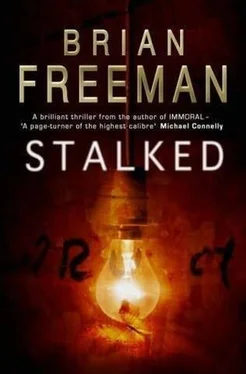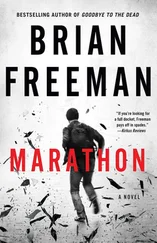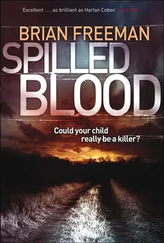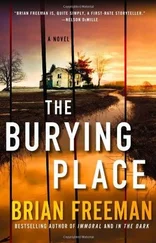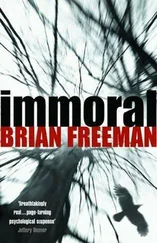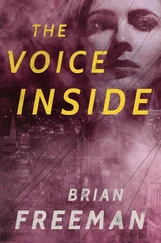The words floated like dead leaves blown in the air and never touching ground.
"We've known each other a long time, Tony," Maggie said softly. "Ever since the Enger Park case."
"Yes, that's right."
She remembered how young they all were back then. They spent hours together-Stride, Tony, and Maggie-going over evidence, looking for a pattern, building a picture of the killer. Tony was the profiler. You're dealing with a serial killer , he had told them. He's going to do this again. He's a male, probably married, probably in his forties. He has a teenage daughter, and he either abuses her or fantasizes about abusing her. I don't think cutting off the head and hands is about obscuring the victim's identity. It's about the killer's anger and guilt. He needs to erase this girl .
The profile made perfect sense, and it got them nowhere.
"The Enger Park case is back in the news," she added.
"I know."
"What's your gut say, Tony? Could we be looking at the same perp?"
"After ten years? That's a long time between crimes."
"But it does happen. I mean, serial killers sometimes wait that long."
Tony shrugged. "Yes, it depends on whether they can find some other way to resolve their pathology. Something that provides a similar sense of power or release."
"How would a rapist and murderer resolve his pathology?" she asked. "I've always wondered about that."
Tony got up and went to the mahogany bar where he kept his coffee press and poured another cup. His paunch made a bump in his sweater. He made a face as he drank. The coffee was cold. He stood in front of the glass wall, and all Maggie could see were reflections and nothing but darkness framed behind him.
"There are many ways," he told her. "It depends on the individual. The perpetrator needs to find a substitute for his deviant behavior, something that satisfies his underlying need for power and control. The BTK killer in Wichita wound up as a leader in his church, and the social status he had in that role was apparently enough to keep him from committing more murders for many years."
"That sounds too easy."
"No, it's not easy at all. Keep in mind that most of these killers want to control their violence. They live a constant, mortal struggle between good and evil. Some control their impulses all their lives. Others fail. The lucky ones find a way to cage the beast."
"What about being sort of a sexual voyeur?" Maggie suggested. "You know, being involved in rape cases, working with rape victims, that sort of thing. Could that do it?"
Tony narrowed his eyes. "Maybe."
"So being a cop could actually work, I suppose."
"It's possible."
"Or working with cops. That would do it, too."
"Like I said, anything's possible."
Maggie nodded. "You remember Nicole Castro, don't you?"
Tony took a seat behind his desk on the other side of the room. He reclined backward in his Aeron chair. "Yes."
"I didn't realize you treated her," Maggie said.
"I work with lots of cops, but I can't talk about patients."
"Right, privilege, I know."
Tony sipped his cold coffee.
"Stride came to see me this evening," Maggie went on. "Abel Teitscher was in the Cities this afternoon talking to Nicole about the Enger Park case."
"Oh?"
"It turns out Nicole thought she was close to a breakthrough on the case right before she was arrested. She said you were a big help."
"Me? I don't recall."
"She says you pointed her in the right direction. Told her to walk this way . Get it? Aerosmith? Pretty funny, huh?"
"You've lost me."
"Well, you helped her find out a lot about Aerosmith fan sites and chat rooms, and wouldn't you know, she thinks she found out who the Enger Park Girl was. She thinks it was a girl who got picked up by a bad, bad guy at an Aerosmith concert in Kansas City in 1997. That was a couple days before we found the body in the park. So Nicole figures the murderer was at the concert, too."
"Sounds like a pretty big haystack in which to find a needle," Tony said.
Maggie rolled her eyes. "Yeah, that's for sure. Nicole was optimistic. Those concerts are zoos, right? Tens of thousands of people there. But I don't need to tell you that."
"No."
Maggie turned around and squinted up at the diplomas hung on the wall behind her. "I need glasses. It kills me. Say, I'm right, you went to the University of Minnesota, didn't you? You were there in the early '90s?"
"Yes. I got my B.A. and then did my graduate work there, too."
"We were probably both there around the same time, but we never ran into each other."
"The U is like a city," Tony said.
"It sure is. Thousands of students, and you never meet more than a fraction of them. You never hear their stories. Like Helen Danning, she went to the U at the same time we did, but she dropped out and never went back to school. Too bad."
"Who's Helen Danning?" Tony asked blandly.
"She's the second Enger Park Girl," Maggie told him. "The woman we just found yesterday."
Tony stroked his beard and briefly closed his eyes. When they opened again, Maggie stared at him without blinking. Her eyes were bright and cold. She was talking to him silently. Telling him the truth. Daring him. It was as if they were connected by an invisible tether, a waxy string tied to the bottom of two foam cups, and she was whispering in his ear.
"I didn't hear that you had identified the body," Tony said.
"No, they haven't released that to the press, but it's her. The killer made a big mistake. He missed a small tattoo on her ankle."
"Oh?"
"The tattoo said TLIM. Helen kept a blog. The Lady in Me. The blog was how Eric traced her to the Ordway in St. Paul."
"Eric?"
"That's right. Eric went to see Helen Danning just before he was killed. Helen disappeared the next day. You see, we're still putting the pieces together, but we think Eric found her because of a story she posted on the Web about being sexually assaulted while she was at the U."
Tony shrugged. "Why would Eric want to talk to her about that?"
"Yeah, that's the real question, isn't it? What would lead Eric to believe that a girl named Helen Danning getting raped in college would have anything to do with me being raped fifteen years later?"
"I assume you're going to tell me."
Maggie reached inside the pocket of her jacket and slipped out a single sheet of paper. "Here's the part of the blog that Stride and I found really interesting," she said. "This is what Helen wrote. 'The real kicker is that the bastard who did this to me is now in the business of counseling rape victims! He's some shrink up in Duluth!' "
Tony stared at the glossy surface of his desk as if it were a mirror.
"So let me know where I go wrong on this, Tony," Maggie said. "Eric was trying to find out who assaulted me and Tanjy, and he wound up on this Web site for rape victims. He saw what Helen wrote, and alarm bells started going off in his head, because he knew that Tanjy and I had one thing in common. Our shrink. So Eric went to see Helen Danning to confirm exactly who she meant, exactly who this Duluth psychiatrist was who raped her back in college. But he knew what she was going to say. She told him it was you, Tony. That's why Eric came to see you the night he was killed. He wasn't there to find out how someone ordinary could be a rapist. He didn't tell you he was going to see someone else after he left. He was there to accuse you of raping me and Tanjy."
Tony looked up from his desk. "The problem with your little story is that I didn't rape you, Maggie. Or Tanjy. Even if Eric suspected something ridiculous like that, why would I care? I was innocent."
"Sure, you may have been innocent of raping me and Tanjy. But what about your DNA?"
Читать дальше
